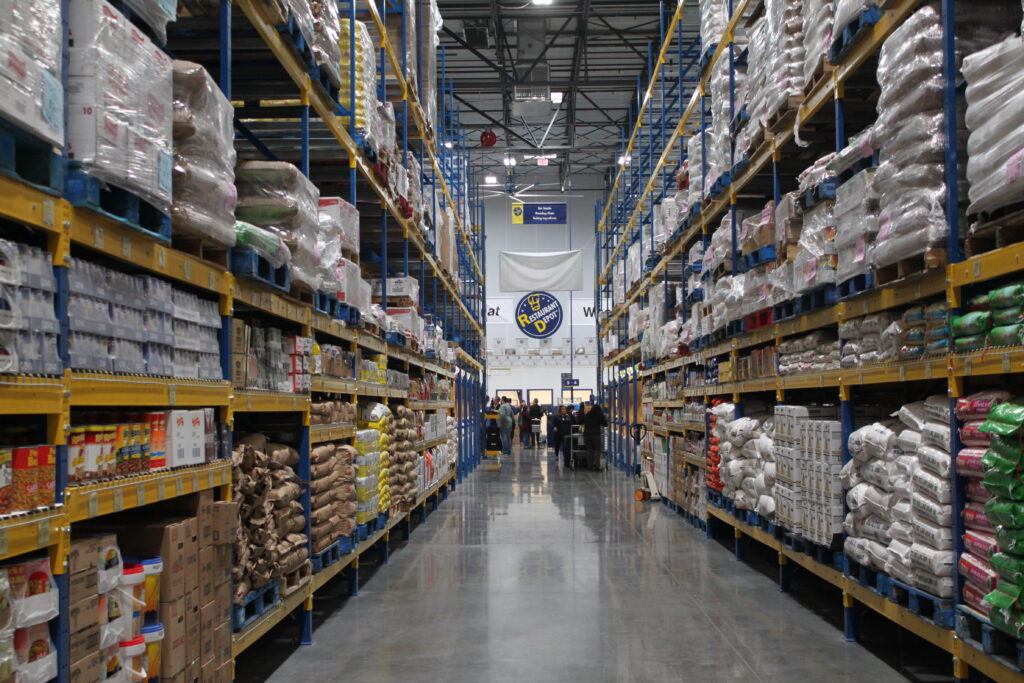How to Save Money Buying in Bulk at Restaurant Depot
Buying in bulk can be one of the smartest ways to stretch your budget, especially if you rely on a steady supply of food and supplies for a restaurant, food truck, catering service, or even a large household. Restaurant Depot has become a major resource for chefs, small business owners, and budget‑conscious families because it offers wholesale pricing without the markup you’d typically see at retail stores. Still, getting the most value out of your trip requires planning, strategy, and a practical understanding of how bulk buying really works.
Below is an in‑depth, human‑focused guide on how to save money efficiently at Restaurant Depot, built on research and real‑world shopping habits from business owners, chefs, and experienced bulk shoppers.
Understanding Restaurant Depot
Restaurant Depot is a nationwide wholesale warehouse founded in 1990 and designed specifically for restaurant and food‑service operations. The company operates more than 150 locations across the United States and is known for offering members access to meat, produce, seafood, dry goods, beverages, bakery supplies, paper products, cleaning materials, and commercial kitchen equipment—all at wholesale pricing.
What sets Restaurant Depot apart is that it doesn’t add the retail markup found in grocery stores. Instead, items are priced closer to wholesale cost. The store’s bulk sizes and high‑volume turnover contribute to consistently lower prices.
Membership is free, but you must show proof that you operate a business or nonprofit. For individuals without a business license, joining via a friend’s business or a household with a qualifying membership is common and fully allowed under their policy guidelines.
Know Before You Shop
Before walking into Restaurant Depot, it’s helpful to understand the layout, the expectations, and the little strategies that can help you shop smarter.
Membership requires a tax ID, business license, EIN, or nonprofit documentation. Once enrolled, you’ll receive a membership card that allows you to shop at any location nationwide.
Timing your visit matters. Many regular shoppers recommend going early in the morning on weekdays when the store is restocking and crowd levels are low. Weekends tend to be busy with event planners and independent caterers.
Bulk packaging is fundamental to their pricing. Most items come in cases, 10‑lb bags, or commercial‑sized containers. Understanding the quantity you actually need will help prevent waste and save money.
It also helps to bring coolers or freezer bags if you plan to buy meat or dairy, since the checkout process and loading area sometimes take longer due to warehouse‑style operations.
Compare Unit Prices
One of the most effective ways to save money at Restaurant Depot is by focusing on unit price, not the overall price tag. A large case may look like a deal, but the only way to confirm is by checking the cost per pound, ounce, or piece.
Restaurant Depot provides unit prices on most shelf labels, which makes comparing products easier. For example, a 10‑lb bag of chicken wings might cost slightly more upfront than a 5‑lb bag at another store but be significantly cheaper per pound.
Professional chefs and food‑service managers routinely analyze unit prices because it allows them to calculate true cost per serving, portion, or recipe. This habit can help individuals and families save just as much as food businesses do.
Watch Weekly and Monthly Specials
Restaurant Depot releases weekly and monthly promotions that can lead to substantial savings. These specials often include:
- Meat and poultry
- Produce that’s in season
- Seafood with high availability that week
- Cleaning supplies
- Bulk spices and pantry staples
Many deals follow predictable cycles. Industry sources like the USDA’s weekly wholesale price reports show that fresh meat prices fluctuate with supply levels and seasonal demand, and Restaurant Depot adjusts prices accordingly.
Checking promotions before your visit allows you to plan meals or menus around what’s discounted instead of paying full price for every item.
Buy High‑Turnover and Seasonal Items
Restaurant Depot’s pricing model relies on volume. High‑turnover categories—such as chicken wings, ground beef, onions, potatoes, flour, and cooking oil—tend to stay competitively priced because they move quickly.
Seasonal items, especially produce, can drop sharply in price. For example:
- Avocado prices dip significantly during peak harvest months in Mexico.
- Citrus fruits like oranges and lemons tend to be cheaper in winter.
- Tomatoes, peppers, and cucumbers drop in price during summer due to domestic supply.
Shopping in alignment with natural market cycles, which are well documented through trade sources like the USDA Market News Service, ensures better deals and fresher products.

Split Bulk Purchases
Not every household or small business needs a 40‑lb case of chicken or a 25‑lb bag of rice. This is where purchase splitting becomes extremely helpful.
Sharing bulk quantities with:
- Friends
- Family
- Neighbors
- Fellow business owners
- Community groups
can instantly lower your effective cost while preventing waste. Categories that are easiest to split include dry goods, frozen foods, spices, paper products, and cleaning supplies. Many professional caterers collaborate with one another this way to reduce overhead.
This strategy is also popular among large households and meal‑prep communities. By splitting cases, shoppers gain access to wholesale pricing without overbuying.
What Not to Buy in Bulk
Even at Restaurant Depot’s prices, not everything is worth buying in bulk. Items with short shelf lives or high perishability can lead to waste, which ultimately eliminates savings.
Products to be careful with include:
- Soft berries (spoil quickly)
- Premade deli foods
- Pre‑cut vegetables
- Small‑batch baked goods
- Refrigerated sauces with short expiration dates
Additionally, certain everyday items like eggs, bread, or cheese may occasionally be cheaper at supermarkets, depending on local sales cycles. Always compare unit prices with your regular grocery store or local competitors.
Best Items to Buy in Bulk
Restaurant Depot is known for offering excellent pricing on specific categories that consistently outperform retail price points.
Meat and Poultry
Their meat department operates more like a wholesale butcher. High turnover means fresher cuts and better pricing. Items such as brisket, chicken wings, pork shoulder, ground beef, and whole chickens are known for strong value.
Fresh Produce
While select items are available only by the case, staples like onions, potatoes, citrus, garlic, and peppers frequently offer unbeatable pricing.
Dry Goods
Bulk rice, beans, spices, sugar, flour, and baking supplies deliver strong savings compared to supermarket brands.
Paper and Cleaning Supplies
Restaurants require large quantities of gloves, towels, disposable containers, and cleaning solutions, which means these categories are priced favorably.
Frozen Foods
Because frozen foods have long shelf lives, buying in bulk rarely leads to waste. Items like vegetables, seafood, pastries, and pre‑portioned proteins are particularly cost‑effective.
Store Your Bulk Purchases Correctly
Buying in bulk only saves money if the food lasts long enough to be used. Proper storage helps preserve quality and reduce spoilage, which dramatically extends your savings.
Refrigeration and Freezing
Portioning meat into smaller freezer bags prevents freezer burn and makes it easier to thaw only what you need. Vacuum sealing is ideal but not required. For vegetables, blanching and freezing can extend freshness.
Dry Storage
Grains, spices, flour, and sugar should be stored in airtight containers to prevent moisture, pests, and flavor loss. Clean storage is essential for maintaining bulk quality.
Labeling
Using labels with purchase dates helps rotate food effectively. This is a method widely used in restaurants and recommended by the National Restaurant Association for reducing waste.
Examples of Real Savings
Prices vary by region, but typical savings often look like this based on publicly available wholesale estimates and shopper reports:
- A case of boneless chicken breast at Restaurant Depot may be 20–40% cheaper per pound than retail.
- Spices can cost half the price of supermarket equivalents.
- Bulk produce cases can reduce per‑piece cost significantly, especially for onions, tomatoes, citrus, and leafy greens.
- Paper goods like gloves and take‑out containers can be 25–50% cheaper than big‑box store options.
These savings add up quickly when you purchase multiple categories over a month.
Mistakes to Avoid
Even experienced buyers occasionally make missteps. Avoiding these common mistakes will keep your savings intact:
- Buying more than you can store
- Ignoring expiration dates
- Failing to compare local competitor prices
- Forgetting to check weekly and monthly specials
- Buying bulk perishables without a plan to use or freeze them
Being strategic instead of impulsive ensures that every purchase actually delivers value.
Who Benefits Most From Restaurant Depot
Restaurant Depot is built for professionals, but its savings extend to many different types of shoppers:
- Restaurant owners
- Food truck operators
- Caterers
- Nonprofits and community meal programs
- Large families
- Meal‑prep enthusiasts
- Event planners
Anyone who uses high volumes of ingredients or supplies can benefit significantly from wholesale pricing.
Conclusion
Buying in bulk at Restaurant Depot can dramatically reduce your food and supply costs, whether you run a business or simply want to stretch your household budget. By understanding unit pricing, shopping seasonal items, checking promotions, splitting large cases, and storing your products properly, you can make every trip both efficient and cost‑effective.
Smart planning and informed shopping are the keys to unlocking the real value of Restaurant Depot. With a bit of preparation and the right strategies, your savings can grow steadily—while ensuring you always have the ingredients and supplies you need on hand.
If you’d like, I can help write a meta description, SEO title, internal linking suggestions, or a more optimized keyword placement for this article.
. Do I need a membership to shop at Restaurant Depot?
Yes, you need a business or nonprofit membership, but the signup process is quick and free. Many home cooks qualify by using a simple food‑related business registration.
Is buying in bulk at Restaurant Depot always cheaper?
Not always. Some items offer huge savings, while others are comparable to regular grocery stores. Checking the unit price helps you spot real deals.
What products are best to buy in bulk?
Items like meat, spices, paper goods, and frozen foods usually offer the biggest savings and store well over time.
How can I avoid wasting food when buying large quantities?
Portioning, labeling, and freezing items right after purchase help keep bulk items fresh and reduce spoilage.
5. Can non‑business shoppers visit Restaurant Depot?
Some locations allow guests with daily passes during special promotions, but policies vary. It’s best to call your local store for their rules.




